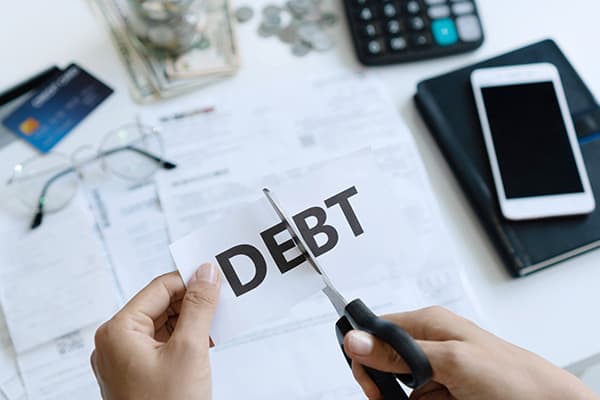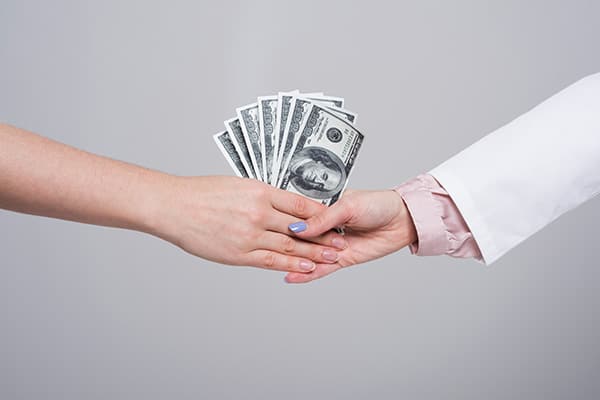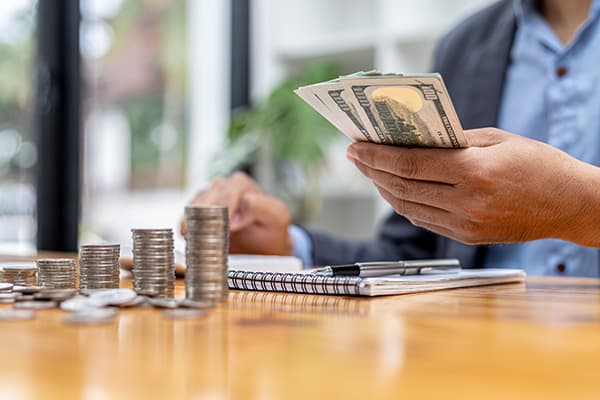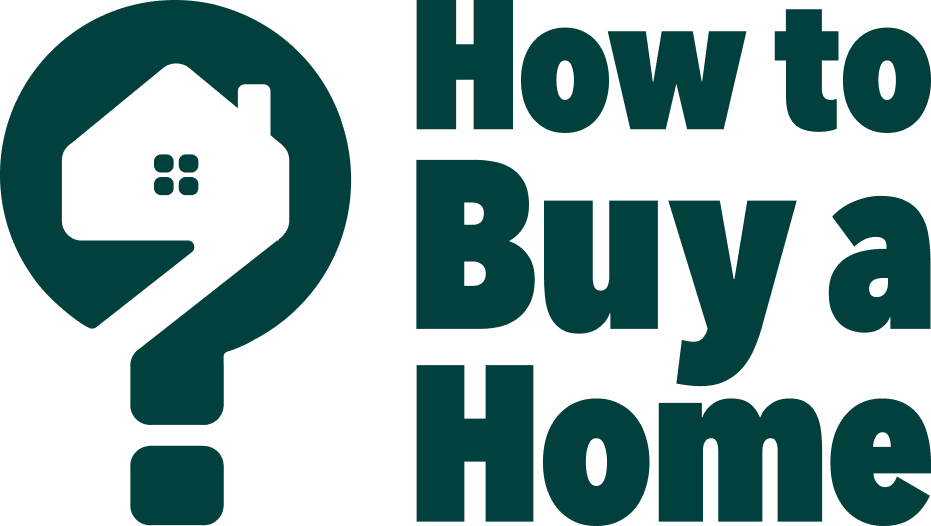
College loan forgiveness is happening, and it may help you buy your first home. This debt forgiveness is worth around $10,000. THAT IS FREE MONEY! But who gets it? How does it work? And what does this mean for your chances of finally being able to stop renting and start thinking about buying your first home? All the answers, and maybe more questions, as your host David Sidoni, dives into the new laws for college debt cancellation.
—
College Loan Forgiveness And The First Time Home Buyer – Part 1
Part 1 Of A 2-Part Episode On How The New Forgiveness Works For You
The government is going to wipe out your college debts. You can finally afford a home. First two things, number 1) In the time that I took you to read this blog, the home that you have been watching on Zillow may have already gone up $10,000. That’s the money you got for the student debt. Number 2) I promise I’m not going to be that snarky in this episode. I’m here to give you the information because it’s confusing.
There’s some good news for some of you out there. I’m going to help summarize what the hell is going on with this student loan forgiveness. Let’s do this. If you need the page here, like, subscribe, and bang that notification bell. The housing market and the financial market is changing all the time. We are going to be giving you updates twice a week on this channel. Stay tuned.
—
What’s happening my, How to Buy a Homies, looking for a handout? Who wants free money so you can finally afford to buy a house? I’m here to help you break down the facts and figures of this whole student loan thing. Here is one of my favorite facts and figures to start. Did you know that the amount of student loan debt in America has grown to roughly the size of the economy of Brazil or Australia? Those are not little places. It’s Bozonkers.
Since 1980, the total cost of both 4-year public schools, as well as 4-year private colleges has nearly tripled. That even accounts when you are putting inflation into the equation. There has been a lot of talk about this whole student loan forgiveness, and now it’s here. What’s going on? There’s so much information. This is going to be a two-part episode.
This first episode is going to help explain who is eligible and how you use the money to see how this can help you in your overall financial plans but mainly help you pay off your debt while you are researching buying a home because that’s what you are here for. We are going to see if we can use this free money to help you stop being a renter.
Part two is going to be the next episode. There is so much I got to do in two different episodes. For many of you, you are going to find out that this forgiveness, you are still going to need to work a plan with your student loans that you have remaining to qualify for a home loan. For many others of you, you might not qualify at all for this forgiveness. We need a plan. Don’t worry. It’s not as arduous as you think. Do you like that? I use the word arduous. I could use some other ones. How about onerous? How about impossible or inconceivable? Shout out to my boy Vicini.
The main thing you got to understand is if you got free money coming in, it’s b*******. The reduction to any loan is awesome and helpful when you are looking to buy a home. Remember, when you are buying a home, the banks add up all of your monthly payments, including all your debts, not your gross total debts. They are going to decide if you can afford the monthly payment for that new mortgage based on the income that you bring in every month against the monthly payments that you have that go out.
[bctt tweet=”The government has figured out that college has become a business.” via=”no”]
Any free money that you have that comes in that reduces your gross debt is not going to help very much for you to qualify for a loan. You need to restructure the loan. You have a lower monthly payment. That helps you qualify for more loans. We are going to talk about how to help you do that now. If you don’t qualify, we are going to help in part two of this series.
Pell Grants
Here we go for part one. We are going to find out who gets the money, who gets these freebies, how is this whole thing going to work, and how’s it going to help you get home. If you find out you are not going to be eligible, part two of this episode is for you. It’s coming up, so stay positive. I’m giving the facts. I’m reporting, no politics. Let me explain the math behind how this works.
They are trying to help as best they can because the government has figured out what we have all known forever, the college has become a business. The administration sees this skyrocketing cumulative Federal student loan debt. It’s $1.6 trillion and rising. We got 45 million borrowers out there who are dying for any help. What they are trying to do is do something to help America’s middle class.
We got 45 million borrowers out there who are trying to get any help. It is something they are trying to do to help out the middle class. What we find out is that not everybody with student debt is going to qualify. These credits are mathematically designed for something called Pell Grants. These are small government grants, and here is what you must know about how they work.
Pell Grants have been around since the ‘80s and used to cover nearly 80% of the cost of a four-year college degree. That made my video producer laugh because he knows how small Pell Grants are. In the ‘80s, Pell Grants were $6,000. That did cover 80% because the average tuition for four years at a public university was $8,000.

This graph shows that the gap has widened quite a bit. Pell Grants are still only at $6,000 but look closely at that top number, the way out of control price that they are talking about. They’ve got the average price, which is an actual number for a four-year degree at a public university. It’s under $25,000. Do you see where I’m going with this?
That comes straight from The White House. This is them trying to fix the Pell Grants, which they should have because they stayed the same all these years while everything has been going up again. This isn’t politics. It’s not red or blue. It’s not opinion. I’m going to give you the facts. You can work with the system and see where you are on this socioeconomic ladder. You will be able to look at numbers and see what you got to take advantage of.
The second crucial number and that number is determined by the job that you get with the education that you got. We are going to figure out what’s your income and who is going to get this forgiveness from the government. First, let me get this out of the way. If you are still a dependent and on your parental dependency, if you are listed as that, that’s going to be based on your parent’s income, not yours.
What Is Debt Forgiveness Based On?
For the rest of you who are out of school and got excited when the White House announced this, look at this chart from the White House. This all came from the Pell Grants but this chart shows you where the relief for the borrowers is going. Eighty-seven percent of that relief is going to people who make less than $75,000 a year. They are saying, “Eight million people are going to be eligible for this.” If you heard those numbers, it might be a gut punch to you when you saw where this debt forgiveness came from. That is originally from those old Pell Grant numbers and based on the income qualifications that are out there.
The two huge numbers this whole free money is based on. Number 1) It is based on them trying to help people whose college only costs $25,000. That’s for anybody out there, and that’s for every year, not for one semester. Number 2) Your income that you make as a college graduate, if it’s more than $75,000, you are not one of the people they are targeting.
[bctt tweet=”If you’ve got your Pell Grant, put it somewhere safe right now.” via=”no”]
According to the info, individuals who are single and earn under $125,000 are going to qualify for $10,000. If you are married, you file your taxes jointly, and your income is under $250,000, then you qualify. This chart, direct from The White House, revealed that 13% of the people that are going to get these cancellation dollars they’ve got, only 13% of the people making $75,0000 to $125,000 as an individual are going to get some of that money. Eighty-seven percent of that is going to go to people making $75,000 or less.
If you qualify, the good news is that this debt relief will not be treated as taxable income. That’s awesome. It is supposedly going to put up an extended pause on the pause we’ve already had on student loans. They are saying that there’s going to be a pause until January of 2023. That is good news for everybody until the end of 2022. If you do qualify, the bad news is that you have to navigate the jacked-up Federal loan servicing system and keep a close eye on your accounts, credit report, and anything else that the government could screw up for you.
Who Is It Targeting?
I’m getting this to you guys as quickly as I can right off of the news. I pulled this right from the internet. There is a ton more stuff that they are trying to figure out. They are going to be working on making it more manageable and fixing current loan repayment systems but all that is in the works, and it’s probably subject to change several times. Let’s take a look at who this forgiveness program is targeting.
According to the White House, some of the stuff they are trying to do to help simplify the loan repayment programs for people, and none of this stuff has worked out yet, but they would like it to look a little something like this. A typical single construction worker making $38,000 a year with a construction management credential is only going to pay $31 a month in the new proposed program compared to the $147 they pay now under the new most recent income-driven repayment plans. Those plans that they make for you are based on the income that supposedly gives you the payment that works out best for you.
The plan they got now is $147. Under the new plan, they are only going to pay $31. That is a savings of nearly $1,400. The second part of the chart talks about a public school teacher with an undergraduate degree, making an average of $44,000 a year. Instead of paying $197, they are going to pay $56. That is a savings of $1,700. For your typical nurse making $77,000, who is married with two kids, instead of paying $295, they are only going to pay $61. That is an annual savings of $2,800. That’s pretty significant. If you graduated, everyone is pretty stoked trying to figure out how to get this extra $10,000 or $20,000 for the two of you but that is going to be subject to those income maximums.

As far as the repayments that they are talking about for the construction worker, the nurse, and the teacher, we are waiting to see how that stuff all gets lined up but hopefully, that will work out for you too. For now, the one thing that we’ve got a good handle on, I’m going to give you all the details on this program, which again is designed for individuals who make $125,000 or less and couples that make $250,000 or less but bear in mind, 87% of this cancellation forgiveness money are already earmarked for the individuals that make $75,000 or less and couples that make less than $150,000.
FAQs
For the rest of you who are out of school and adulting like a boss, part two of this series is going to be in the next episode, and that’s going to help you. You can figure out what you can do to manage this debt and still be able to buy a home. I did take my time and read through the entire White House government page. I’m tired of thinking about it.
What I did was researched a whole bunch of other places, and one of the best places I found for frequently asked questions was a New York Times article on this. Let me give you some rapid-fire frequently asked questions at times to help figure out because they had people who read through all this too.
You only have graduate school debt but you got a Pell Grant when you were an undergraduate, “Are you eligible for an extra $10,000?” Yes, you are. You had a Pell Grant but only for one year. “Are you eligible for $10,000?” Yes. At the time, you only qualified for a partial Pell Grant. “Are you still eligible for $10,000?” Yes, but partially less of you. I’m kidding. I don’t even know what that means. “How will the powers that B know that you have a Pell Grant so you can get your money?” This is a government thing. Have you ever been to the DMV? How about the post office?
This is a government thing, ladies and gentlemen, boys and girls. Supposedly, they are already working on improving the online accounts to make your Pell history clearer. My rule thumb is if you’ve got your Pell Grant, I will put it someplace safe now. I will put it in a safe. Don’t shred it and hang onto it because I guarantee you, someone is going to ask for a copy of it.
[bctt tweet=”If you majored in keg stands and beer pong in college, you are still qualified for debt forgiveness.” via=”no”]
Who qualifies for this as far as your type of debt? This is for the Federal student loan debt. Private loans are not eligible for this. This is specific but if you have an FFEL loan, that’s a Federal Family Education Loan. If you are on one of those loans and it was eligible to be on pause during this pause time, you are eligible for this forgiveness. There you go. I don’t know what those are but you do.
What if you were a student in 2022? Do you qualify? Yes, you do. One of the things they got is if you were dependent during the 2021 school year, and that is the department of education’s definition of a dependent, not the definition for Federal tax purposes. If you were dependent, your eligibility would not depend on your income. It’s going to depend on your parent’s income. What if you are like all my friends who went to college and didn’t get their degrees? You majored in keg stands and beer bongs. No, you are not disqualified. Come on in, everybody.
What’s the first thing you need to do if you qualify? Start by talking to your loan people. I’m going to say it over and over again. Talk to your loan people. Make sure they have your current address. Make sure they can get a hold of you. The Department of Education supposedly has on their webpage something called Who is My Loan Servicer? How about that? Check that out. We are going to talk about it at the end but make sure that you double-check and whom your loan servicer is by you researching it. Not by answering the phone. We will get to more on that later.
How has this happened? Does this happen automatically? It depends. If you are already enrolled in some income-driven program, then they probably have your information. We are at the end of August 2022, and they said, “Eight million people may become eligible for this automatic relief.” I would check with your loan servicer and loan provider and see if you are on the list. Here is the big one for buying a home. If you are eligible for this and you got more than $10,000 in debt, how is this going to be brought to your loan? Is it going to affect your monthly payment?
Supposedly, your payments are going to be recalculated. The specifics haven’t been released yet but there are a couple of different educated guesses that people are doing. The main thing is to make sure it’s not taken in and brought against your gross. If you are already in one of those income-driven programs, a lot of times, what they are doing in their payments is based on your discretionary income and household size. Discretionary income is usually understood as the income that is left over after you pay for basic needs like food and rent.

In this world of student loans, you need to find out how they are figuring out what your payment is. With this $10,000 to come in, if they put it against your gross, is that going to reduce your monthly payment? That is extremely important if you are excited about this money coming in and hoping it improves your chances of getting a home loan.
Whatever you do, make sure that you talk to them and figure out if this is going to be going towards your principal and reducing your payment. As far as when you can sign up for all this, it’s not released yet. They are super excited to do the press release. They got that out there. What about the people who are asking if they qualify, even though their loans were in default? Yes. Defaulted borrowers, if you were eligible for the payment freeze that happened and you got that pause, you should be eligible for this program as well.
The Two Big Questions
We get to the two big questions people want to know about, “Is this going to be here forever? Is this going to keep happening?” As far as this getting reversed, I don’t know. It’s a crazy world. Any elected official who would try to sue and change this law runs the risk of infuriating their constituents by adding $10,000 back on their loan. Who knows if there are a bunch of constituents that find debt cancellation offensive? If enough of those people can figure out how to get their voting together and change the laws, it could change anytime. Welcome to the legal system.
For those of you wondering if this is going to be a regular thing, the first of many, the only thing I can tell you is that I have no dog in this fight. No politics. All I can tell you is I sat back and watched it. This problem has been going on for years. We have watched colleges inflate their tuition. I bet the people who run the colleges are the same people who are the landlords.
If you go back to the ’80s, their graphs are almost the same thing. It has been ridiculous, and no one has stopped the landlords from doing it. No one has gotten in and stopped because the colleges are private businesses, many of them. Therefore, what they have done has been unable to reduce the crazy skyrocketing tuitions. I wouldn’t count on this happening again. The first thing you need to do to find out if you qualify is to check with your provider. If they are looking for any proof, make sure you have all your tax returns ready.
[bctt tweet=”In 2021, almost 30 billion phone scams happened. The more freebies, the more scams.” via=”no”]
I’m giving you the information as best I can but you should check with the education department and your loan provider because this is the basic information on college debt relief. I am not certified, licensed or even partially qualified as a government employee in any way. I got no actual knowledge. I’m your personal, super geek with a microphone. I read a whole bunch of articles from trusted sources, and I regurgitated it all to you.
Beware Of Scams
Hopefully, this was more palatable than you trying to read all that stuff. Something that you could read while you are doing your chores or watch on YouTube while you are trying to fall asleep. I made you fall asleep. Didn’t it? Goodnight. I mentioned this a little bit earlier but I do want to make sure that you understand and be aware of scams. People are always trying to take advantage when these big programs pop out like this.
The more freebies that happen, the more scams that happen. According to CNBC, in 2021, $29.8 billion, almost $30 billion phone scams happened. From the PPP to the COVID relief to the IRS scams that are going on. My parents got caught on that, two years in a row. They didn’t get caught but someone called them, and then they called me. Thank God they did.
Summary
Be careful. Take care of yourself. Don’t believe the scammers. Check with your provider first and the Department of Education. One of the good resources for you is that you can always check with your school, and they will get you the full list of the itemized stuff that you owe. Those who were reading and did the research on your own, you figure out that you qualify. The main thing that you understand is that any debt reduction is great.
When you are buying a home, the banks are going to be adding everything up and looking at your monthly payments, not your total gross debt. They are going to decide if you can afford the monthly payment for a mortgage based on the income that you bring in every month against the debts that you pay out every month.
Any free money that you get, if it’s from the government, your uncle or wherever it comes from, if it’s reducing your gross debt, that’s not going to help you when you are qualifying for a home. The big important part that I hope you take away from this episode is restructuring your loan payment. That’s going to help you qualify for more of a home, which hopefully, you are going to be able to do some of the information you got here or with some of the tips, we are going to give in part two of this episode.
Make sure you read part two. I will give you all those tips, and hopefully, we will get you in a position to lower your monthly payments and help you to buy your home faster. Help me out, gang, share this episode with other people you know suffering from student debt, and don’t let the emotions of debt, the old school thinking out there or any of your negative mentality. Don’t let any of those things keep you from starting now. Start making your plan to buy a home. Even if you’ve got debt, assume that you are going to figure out a way to fix it.
You are reading this blog, which means you are already starting to figure out how you can get in control and how you can figure out how to manage your debt. The one thing I see that you can’t control is your rents going up every single year. You can control your debt. Now that you got started, you need a plan, and there are going to be more plans coming for you in part two of this episode. Keep planning and working. You can do this.
Important Links
- Zillow
- YouTube – David Sidoni
- New York Times article
- Who is My Loan Servicer? – Article
- CNBC – Article
This podcast was started for YOU, to demystify things for first time home buyers, and help crush the confusion. After helping first timers for over 13 years, I knew there wasn’t t a lot of clear, tangible, useable information out there on the internet, so I started this podcast. Help me spread the word to other people just like you, dying for answers. Tell your friends, family, and perhaps that random neighbor you REALLY want to move out about How to Buy a Home! A really easy way is to hit the share button and text it to your friends. Go for it, help someone out. And if you’re not already a regular listener, subscribe and get constant updates on the market. If you are a regular and learned something, help me help others – give the show a quick review in Apple Podcasts or wherever you get your podcasts, or write a review on Spotify. Let’s change the way the real estate industry treats you first time buyers, one buyer at a time, starting with you – and make sure your favorite people don’t get screwed by going into this HUGE step blind and confused. Viva la Unicorn Revolution!
Instagram @DavidSidoni
Tik Tok @howtobuyahome

